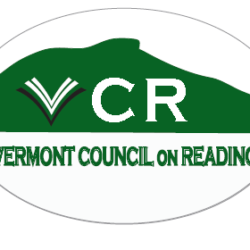Read-a-thon: Hold a “Read-a-Thon” with different stations set up for families to explore various aspects of reading.
Run for the Readers: To raise awareness of family literacy in your community, how about a “Run for the Readers.” The run/walk for parents and children could be followed by refreshments and free take-home books for participating families.
Literacy Breakfast: Hold a “Literacy Breakfast” with officials from your community, city or state.
Pajama Party: Everyone enjoys a “Pajama Party.” Host a pajama party in the school library to emphasize bedtime as a great time for reading together.
Camp Read-A-Lot: Invite children to bring sleeping bags, pillows, stuffed animals, and other appropriate “reading camp” items for a day of fun, relaxed reading. Tell stories around a pretend campfire, etc. Invite parents and others to join the festivities.
Poster Contests: Have children design posters about their favorite book and display them around the school. Posters can also be designed with clever sayings about reading or books to advertise a school book fair or other literacy event.
Bookmark Contests: Provide children with a bookmark form to design. Encourage them to think of and illustrate their own clever saying about reading, books, or the library. If children design their bookmarks in black ink or marker, these can be duplicated for use in the library and/or distribution throughout the school!
Guest Readers: Invite parents, administrators, local celebrities, and government officials to share their favorite children’s book with the students.
Local Authors, Storytellers, and Puppeteers: Invite authors, storytellers and puppeteers to share their talents with the students.
Reading Challenge: Challenge students to read a certain number of books by a certain date. Progress toward the goal can be shown in a variety of ways: a thermometer-type chart, a progress chart that grows with each book read (students add mascot shapes or another design for each book read) as the chart winds around the school, etc. When the goal is reached, the principal can sit on the roof all day, take a pie in the face, get taped to the wall, etc.
Character Challenge: Post clues about a main story character and have children search for the book or series with the character. When the character has been identified, implement fun activities to stimulate an interest in the book/series.
Don’t Read Anything Day: Tell students that for one whole day (on a weekend) they are not to read anything. When they return to school have them share everything that they caught themselves reading (shirts, TV commercials, road signs, menus, etc.) Laugh about how hard it is to NOT read!
Everybody Reads Day: Set up a day, morning, or afternoon for everyone in the school to read. Have children write the titles of the books that they read on a paper-covered classroom door for everyone to see!
Read-A-Shirt Day: Have students and teachers wear clothes with [appropriate] written messages or designs. Read and enjoy the variety of messages that appear on clothes. Sort the messages into categories (brand, sports team, saying, etc.), if desired.
Poetry Day/Week: Spend a day or week reading, writing, and sharing poetry across the curriculum. Play with the language. Respond to poetry through art, music, and movement. Invite parents, teachers, and others to share their favorite poems. Have each child draw the name of a secret classmate to be their poetry pal and choose a special poem that this child would enjoy. Have him/her copy it neatly, illustrate it, and practice reading it for presentation to their secret poetry pal on a designated day. Poetry pal meetings can continue throughout the school year, if desired, as children share poems that they’ve read and written. Biography Day: Spend a day reading about famous writers, scientists, inventors, leaders, mathematicians, artists, musicians, etc. Locate web sites, draw posters, sing songs, and develop projects to inspire an interest in reading about real people.
Fairy Tale Festival: Have students read and enjoy fairy tales, create and display projects, dress up like fairy tale characters, write riddles about fairy tail characters, and play games about fairy tales.
Character Parade: Have children dress up as their favorite story character and parade around the school. Children can also write clues about their character to help other students guess who they are.
Author’s Birthday Party: Celebrate the birthdays of students’ favorite authors. Provide an appropriate snack (considering the books written by the author), an opportunity for book sharing, and a fun activity to go with one (or more) of the author’s books. Authors’ birthdays can be found on Alan Brown’s Just for Kids Who Love Books web site.
Library Scavenger Hunt: Write questions about children’s books that challenge students to use different parts of the school library to locate the information. Have students work in teams to find the answers to the questions.
Book Fair: Schedule a school book fair to enable children to purchase books at school.
Book Swap: Schedule a school book swap to enable children to trade books. Have a parent of each participating student sign a permission slip listing the books that the child is allowed to exchange. Then have children trade a book for a coupon early in the day. Display all of the books and allow students with coupons to visit the book swap later in the day to trade their coupons for books.
Family Reading Night: Open the school library and invite parents to read with their children. Serve pizza, chili, hot chocolate, or some other “inviting” food to encourage participation. Proceeds from the sale of the food/refreshments can go to the school library!
Reading Buddy Day(s): Set up Reading Buddies between students in different classes or grades. Meet on scheduled days throughout the school year to have students talk about what they’ve been reading, share stories that they’ve written, read together, and/or work on projects. Between meetings, buddies can communicate via email about their reading and writing. An end-of-year party can celebrate a year of great reading, writing, and sharing!
Authors Tea: Have students share their stories and enjoy snacks at an Authors Tea. Invite the principal, parents, and/or other guests.
Young Authors Conference: Have children select the best story that they have written and publish it in a book. Invite them to attend a school, school district, or regional Young Authors Conference to share their book with other children in groups of six to ten students. Provide ribbons for the participants, invite an author to speak to the young authors, and serve refreshments.


